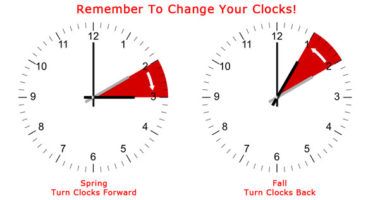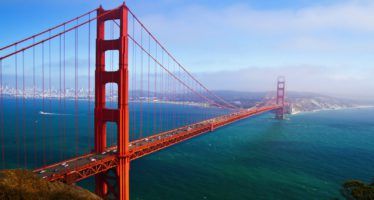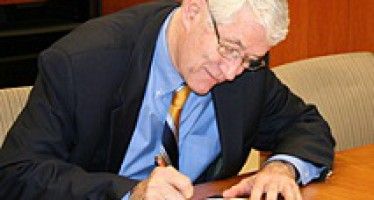Will CA voters scrap daylight savings time?
 The time has come to do away with daylight savings in California, according to Assemblyman Kansen Chu, D-San Jose.
The time has come to do away with daylight savings in California, according to Assemblyman Kansen Chu, D-San Jose.
Chu’s bill to ask state voters if California should become the third state to opt out of changing the clocks once in the spring and once in the fall to maximize after-work daylight hours in warmer months won its first committee vote this month. He is optimistic about his chances.
The reason the move has to be ratified by state voters instead of just being imposed through the legislative process is because daylight savings time is mandated in California by a 1949 ballot measure. Proposition 12 was sold to voters with expansive arguments — that it would reduce juvenile crime, industrial accidents and car wrecks, and help agriculture and save water.
Chu questions such claims and notes that daylight savings time could lead to more energy use because of air conditioners being used by 9-5 workers who get home while it’s still hot. He also cites evidence that time changes are associated with accidents and health problems.
One argument cited by daylight savings fans in northern, colder states doesn’t hold here, especially in Southern California. It’s that since it’s cold most of the year and the sun goes down by 4 p.m. for several months a year, residents get a chance to maximize their time to go outside while it’s warm.
Why Hawaii, Arizona disdain time change
But California has one of the nation’s mildest climates, at least among the most populated communities near the coast. And the closer one gets to the equator, the less difference there is between length of day in the summer and in the winter.
These arguments explain why Hawaii has never had daylight savings time since achieving statehood and why Arizona lawmakers voted to opt out of daylight savings in 1968 in their warm state — though Arizonans also emphasized the point Chu makes about air conditioning.
The bill, AB385, passed a Senate committee on a 9-2 vote, overcoming criticism from Sen. Connie Leyva, D-Chino, who said she looked forward every spring to the arrival of daylight savings. Assembly Speaker Anthony Rendon, D-Lakewood, told the Sacramento Bee that he liked the “variety” provided by daylight savings.
The state Senate Appropriations Committee will take up the bill next, but a hearing has not been scheduled yet.
AB385 passed the Assembly unanimously last year. But that was when it was a mundane measure addressing how local governments deal with solid waste. Chu gutted and amended the bill to use it as a vehicle to target daylight savings. The new version will get a new Assembly vote at some point in coming weeks, unless Rendon decides to use his authority as speaker to sideline it.
To become law, the measure needs to be approved by two-thirds of the Assembly and two-thirds of the Senate, then by signed by Gov. Jerry Brown. If that happens quickly enough, it could join one of the most crowded ballots in state history, with 18 or more initiatives expected to be put before voters in November.
A 2014 Rasmussen national poll of 1,000 Americans found 43 percent opposed to continuing with daylight savings. In an online, unscientific poll this February on the Sacramento Bee website, over 80 percent of voters backed California ending daylight savings.
Daylight savings ‘literally creates chaos’
Chu’s proposal is winning attention. A recent article by Riley McAtee on The Ringer — a Los Angeles-based website run by former Grantland boss Bill Simmons — argued that daylight savings was an established public health risk.
Obviously, humanity has to count time — it’s one way we make order of our chaotic existence. But daylight saving time runs opposite to this idea: It … literally creates chaos: Car crashes, workplace accidents, and even heart attacks are more likely to occur on the first Monday after daylight saving time than on most other days of the year. And it doesn’t even save energy or help farmers, both of which are common misconceptions. Why the hell are we even observing this tradition? …
So, congratulations to California for questioning societal norms and pushing us toward a more efficient future. It’s nice that in a world that increasingly feels like “House of Cards,” there’s a pocket of political activity that more resembles “The West Wing.” Take a bow, Assemblyman Kansen Chu. This is the type of sweeping reform that young political activists everywhere dream of.
Chris Reed
Chris Reed is a regular contributor to Cal Watchdog. Reed is an editorial writer for U-T San Diego. Before joining the U-T in July 2005, he was the opinion-page columns editor and wrote the featured weekly Unspin column for The Orange County Register. Reed was on the national board of the Association of Opinion Page Editors from 2003-2005. From 2000 to 2005, Reed made more than 100 appearances as a featured news analyst on Los Angeles-area National Public Radio affiliate KPCC-FM. From 1990 to 1998, Reed was an editor, metro columnist and film critic at the Inland Valley Daily Bulletin in Ontario. Reed has a political science degree from the University of Hawaii (Hilo campus), where he edited the student newspaper, the Vulcan News, his senior year. He is on Twitter: @chrisreed99.
Related Articles
Not just Seattle: Tech backlash roils San Francisco politics
The Seattle City Council’s interest in imposing an unusual “head tax” on large employers based on their number of employees
Radicals almost burned alive UC official faulted for Occupy response
As the left’s thoughtcrime offensive gears up, the latest victim is former UC Berkeley Chancellor Robert Birgenau, who backed out of
CA media finds de Leon guilty of not being Steinberg
There has been steady turnover in the leadership of the state Assembly every few years, so there is plenty of




